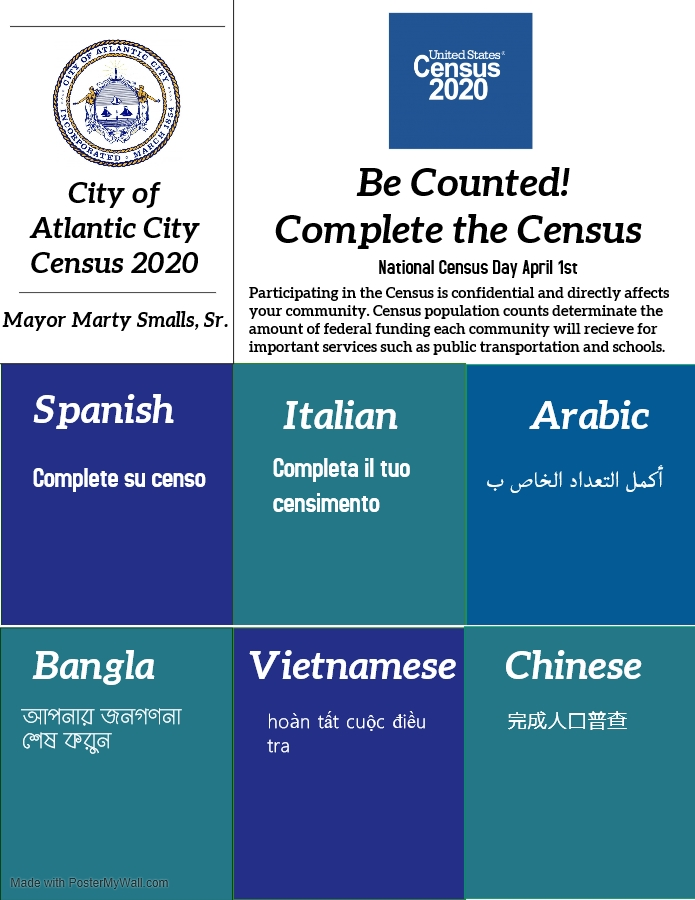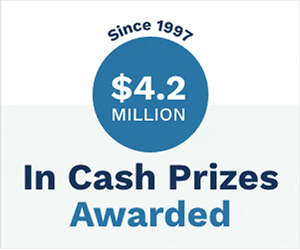Rutgers-Eagleton Poll: Most New Jerseyans Aware of, Trust the U.S. Census

As counting efforts for the 2020 U.S. Census come to a close September 30, most New Jerseyans are aware of the Census and its purposes, and trust the federal government’s use of their information, according to the latest Rutgers-Eagleton Poll.
Just over half (55 percent) of New Jerseyans know that residents are required by law to submit a Census form, and large majorities know the Census is used to determine the amount of federal monies that communities will receive (83 percent) and to determine each state’s number of representatives in Congress (74 percent).
Moreover, 68 percent believe the Census does not ask for more personal information than the government needs, while 15 percent say they trust the government “a great deal” and 47 percent say they trust the government “a fair amount” to use their Census information properly.
A majority of New Jerseyans (62 percent) know the Census is not used to determine whether someone is in the country legally; three in 10 (29 percent) New Jerseyans incorrectly believe this, however.
While it is too early to say how many New Jerseyans will have filled out their Census forms by the deadline, 53 percent of New Jerseyans said they had heard or read “a lot” about the U.S. Census when the survey was conducted this past spring, and another 25 percent heard “something” about it. Almost nine in 10 recalled receiving an instructional letter or postcard related to the U.S. Census, or the questionnaire itself.
“New Jerseyans, overall, are aware of the 2020 U.S. Census and its vital implications for the state, despite initial controversy surrounding a possible citizenship question and setbacks because of the pandemic,” said Ashley Koning, assistant research professor and director of the Eagleton Center for Public Interest Polling (ECPIP) at Rutgers University–New Brunswick. “New Jersey’s awareness and knowledge are illustrated by the state’s almost 99 percent response rate to date, according to the U.S. Census Bureau.”
Yet some demographic differences persist. Non-white residents are more likely than white residents to think the Census asks for too much personal information and are less likely to trust the government to use the information properly. Though majorities of both non-white and white residents know the Census determines the number of representatives for each state and how much money communities get, the former are a bit less likely to believe so than the latter; non-white residents are also slightly more likely to believe the Census is used to determine an individual’s citizenship status.
“These differences in trust and knowledge may be at the root of why predominantly non-white areas in New Jersey have lower response rates than other parts of the state,” said Koning. “Enumeration in these areas, especially, is crucial for federal funding and programs.”
Women are more likely than men to say they have heard or read something about the Census, recall receiving something in the mail, and have completed the questionnaire. Women are less certain than men about whether the Census is used to determine the number of each state’s Congressional representatives.
Younger residents are less aware of the Census, whether or not their household has received anything related to it, and whether they are required by law to fill it out. Those under 50 are more likely to believe the Census asks for more personal information than needed, yet the youngest and oldest residents in the Garden State are more likely to trust the government’s use of Census information than those in the middle. Residents of all ages are similarly aware of the Census’ purposes.
Those with higher levels of education are more likely to be aware of the Census, remember receiving something related to it, have filled it out, and are more likely to know why it is conducted.
“Education is another crucial factor for awareness and knowledge,” said Kyle Morgan, research associate at the Eagleton Center for Public Interest Polling (ECPIP) at Rutgers University–New Brunswick. “Those with less than a college degree are less likely to know what the Census is and is not used for, which may explain why this same group also believes the Census asks for more personal information than needed and is less trusting of the government when it comes to using the data.”
Even when it comes to the U.S. Census, some partisan divisions exist. Republicans are less likely to have heard or read something about the Census. While a majority of partisans of all stripes trust the government to use data from the Census properly, Republicans are slightly more likely to say they trust the government “a great deal,” while independents have less trust than Democrats or Republicans.
Results are from a statewide poll of 1,502 adults contacted by live callers on landlines and cell phones from April 22 – May 2. The full sample has a margin of error of +/-2.9 percentage points; the subsamples of 747 and 755 adults each have a margin of error of +/-4.1 percentage points. Interviews were done in English and, when requested, Spanish.









Leave a Reply